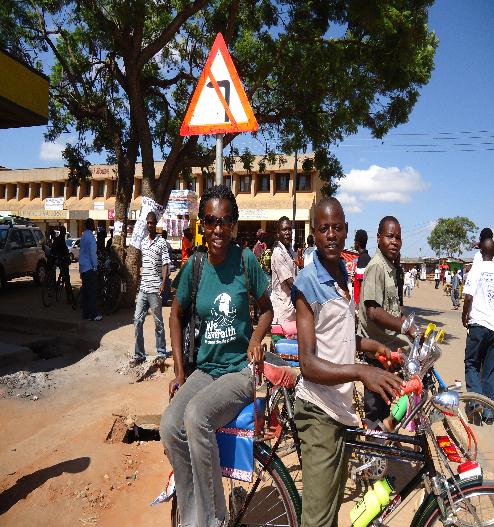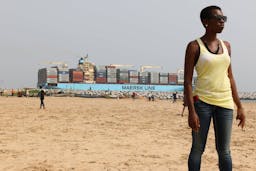MALAWI FORM THE EYE OF THE CARAVAN GIRL
Jan 21, 2015
First story

The Climate Justice Youth Concert took place on the 13th of November at the Civil Service Sports Club in Lilongwe the Capital City with indigenous artiste like Dan Lu and Iloyd Phiri performing. Forty Thousand petitions were signed and received by the Head of Petition Unit, Vincent Gichamba.
Malawi known as the Warm Heart of Africa expressed this quality by the reception they gave members of the caravan. It was observed that of the three concerts so far held in Kenya, Tanzania and Malawi, Malawi was the only country that produced a program of event which was described by a member of the caravan as the Malawi Wedding Card. The Malawian Minister of Energy and Natural Resources, Honourable Goodall Gondwe said the country was glad to host the Climate Justice Youth Concert and urged the caravan participants to help in ensuring a fair and legal binding deal at the Climate Change Conference Coming up in Durban South Africa between the 28th of November till 9th December.
The Africa Climate Justice Caravan arrived Malawi on the 11th of November and camped at Chitimba Beach Camp site, close to the Lake Malawi. On the 12th of November, the caravan departed Chitimba for a six-hour drive to Lilongwe but with a stop at Mzuzu town for a short awareness programme, with the people signing the WE HAVE FAITH: ACT NOW petition.
Malawi is one of the countries in East Africa with a population of about 14 million people with Christians forming about 70%, Muslims – about 20% and about 10% for the other religions. When coming into Malawi from Tanzania, you will first enter Karonga the border town, which is hilly and hot, and also the first host to the popular LAKE MALAWI. The Cash Crops in Malawi include Tobacco, Coffee, Tea, Maize and a large deposit of Uranium. The routes into Malawi from Tanzania include: Karonga – Rumphi - Mzimba – Kasungu – Lilongwe and Lilongwe is the Capital City.
In Mzuzu and other parts of Malawi, the means of transportation is Bicycle popularly called KABAZA. This was introduced about two years ago and according to M’theto Lungu, this was to decongest some parts of Malawi’s towns and cities, which was becoming crowded with vehicles. The KABAZA is usually decorated to make it look like a fancy bicycle. The population of Malawians that uses KABAZA is about 40%, with the fare rate ranging from 50-150 Kwacha.The name is different in Karonga District, where it is known as CARGO and a major means of transportation. The riders of the KAZABA, who are mainly young men, said they make an average of 1500 Kwacha’s daily but who would have loved to do other lucrative business, if the economy was stable.
A Malawian from the Central Part of the Country, Clement Kaitano said in the history of Malawi, the price of oil has increased twice in a year with about 40%. He said Petrol increased from 290 – 390 Kwacha while Diesel increased from 260 – 360 Kwachas, without any increase in the income of the people. Kaitano lamented that Fuel is much available in Karonga the border town because of its closeness to Tanzania.
A Malawian Health Officer, Mrs Esther Masika said a recent protest which resulted in the burning of Africa’s Third Largest Artificial Forest situated in Chigangwa area of Malawi by aggrieved workers, is a threat to Malawi’s ecosystem. Mrs Masika said the workers were trying to express their frustration, due to the non-challant attitude of their employee towards their welfare. The Government’s decision to privatize the Forest to a foreign firm shows the insensitivity of the Government to environmental issues, she explained that Malawi is blessed with vast areas of forest and a good source of carbon sink. “The Government should give more priorities to environment issues because I believe the workers burnt the forest as they are not knowledgeable about the importance of forest to Malawi’s economy and environmental protection”, she lamented.
One thing observed in Malawi from the Environment perspective, is the use of KAZABA as a means of transportation. This helps reduce Carbon Emission as it does not use Fossil fuel and no combustion which would release Green House Gases (GHG). The use of KAZABA by Malawians is a right step in the right direction in reducing GHG, but how far can this be sustained as it is perceived by the rich as a sign of poverty?




